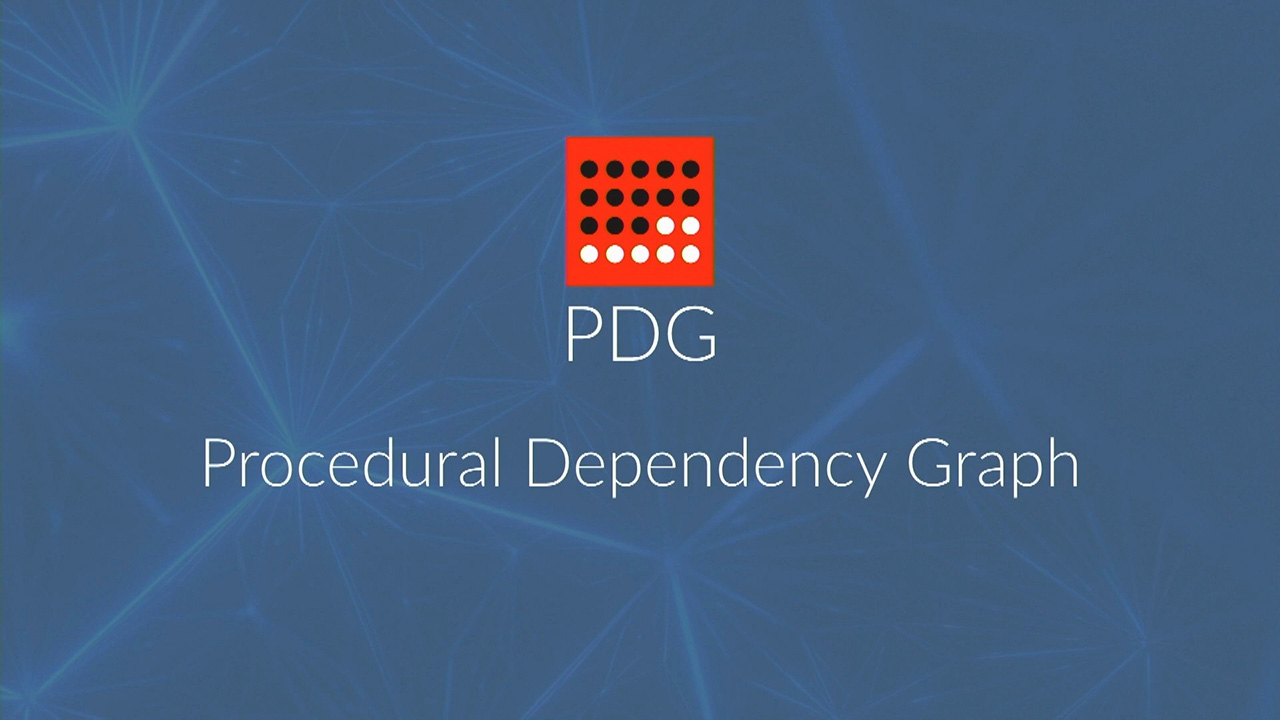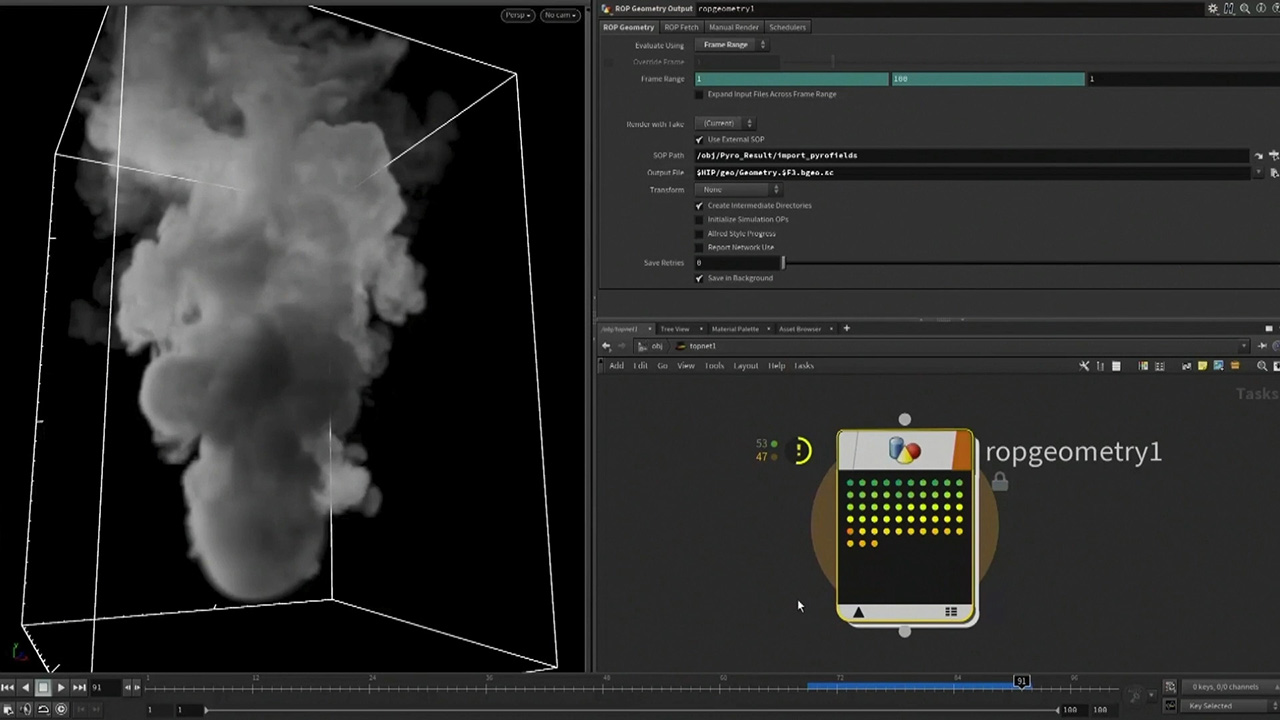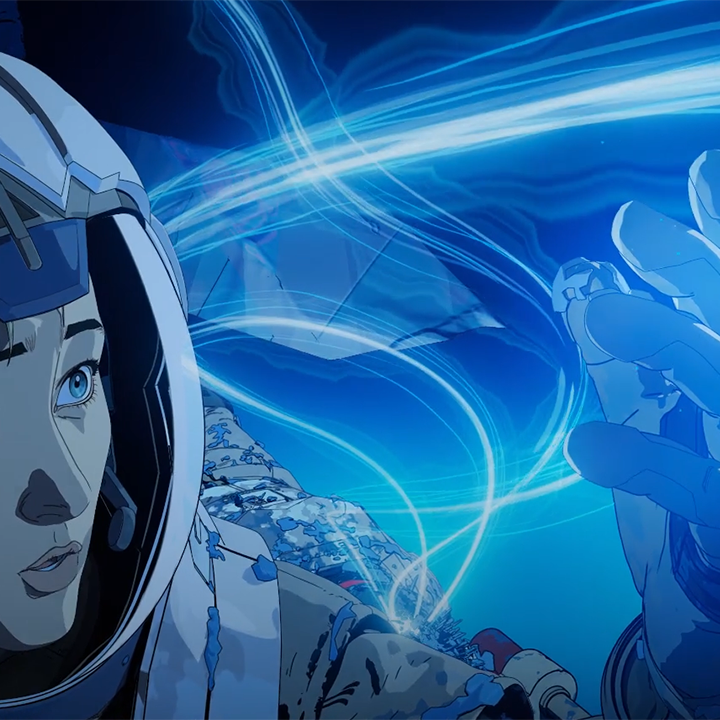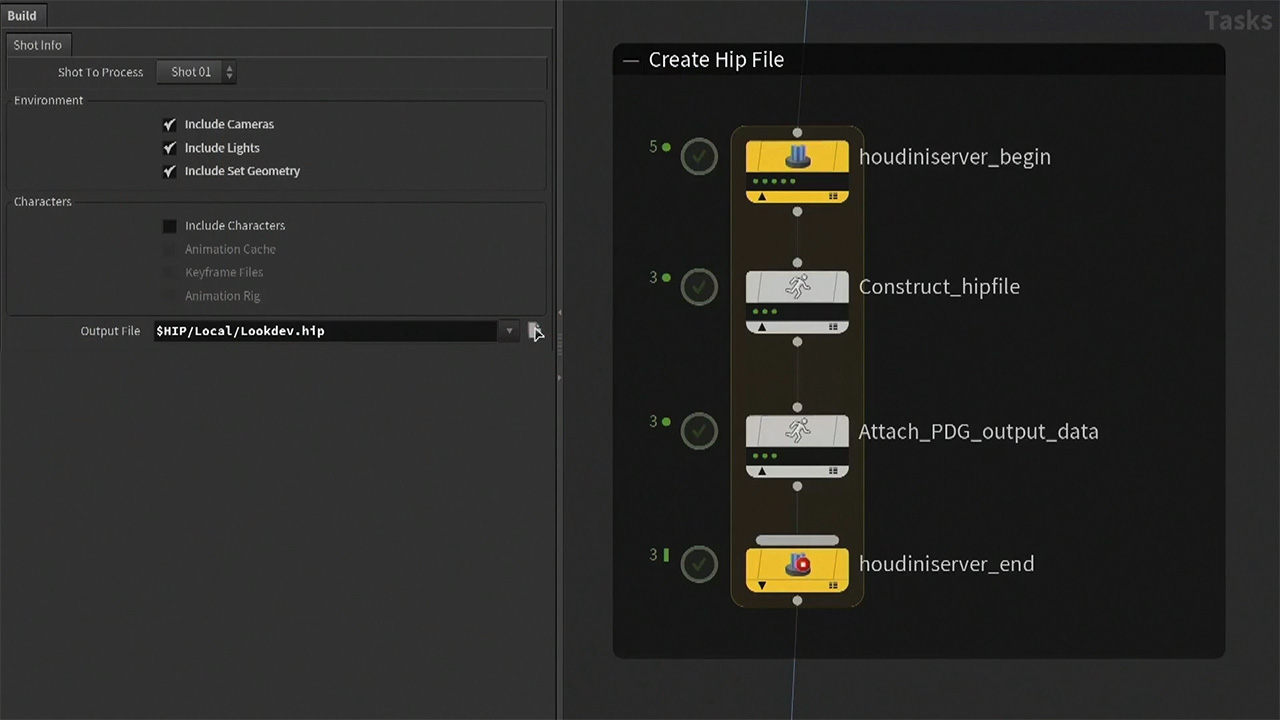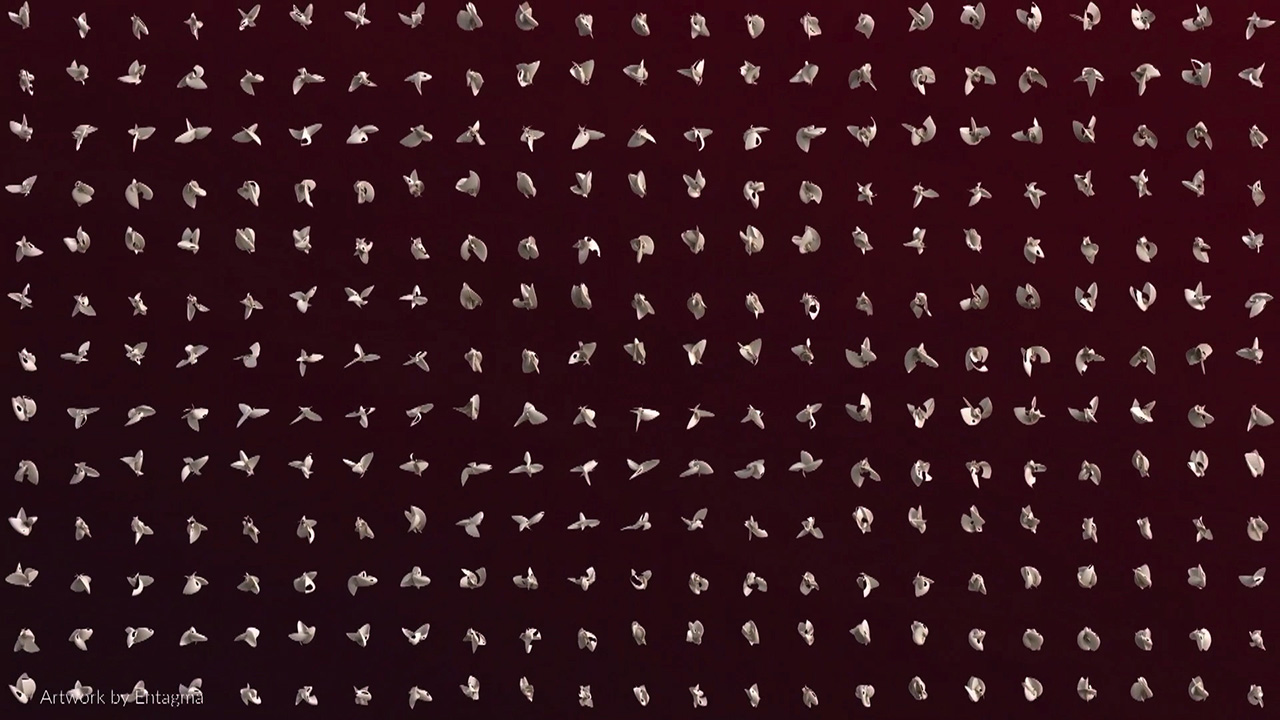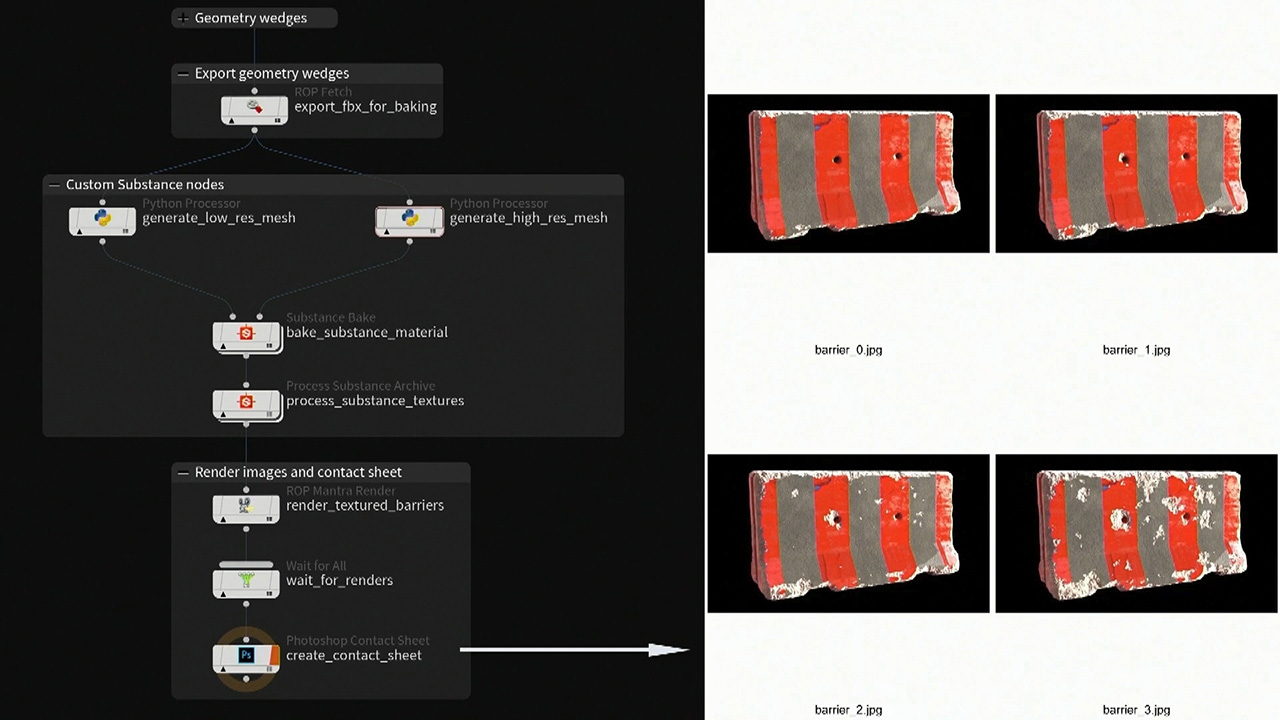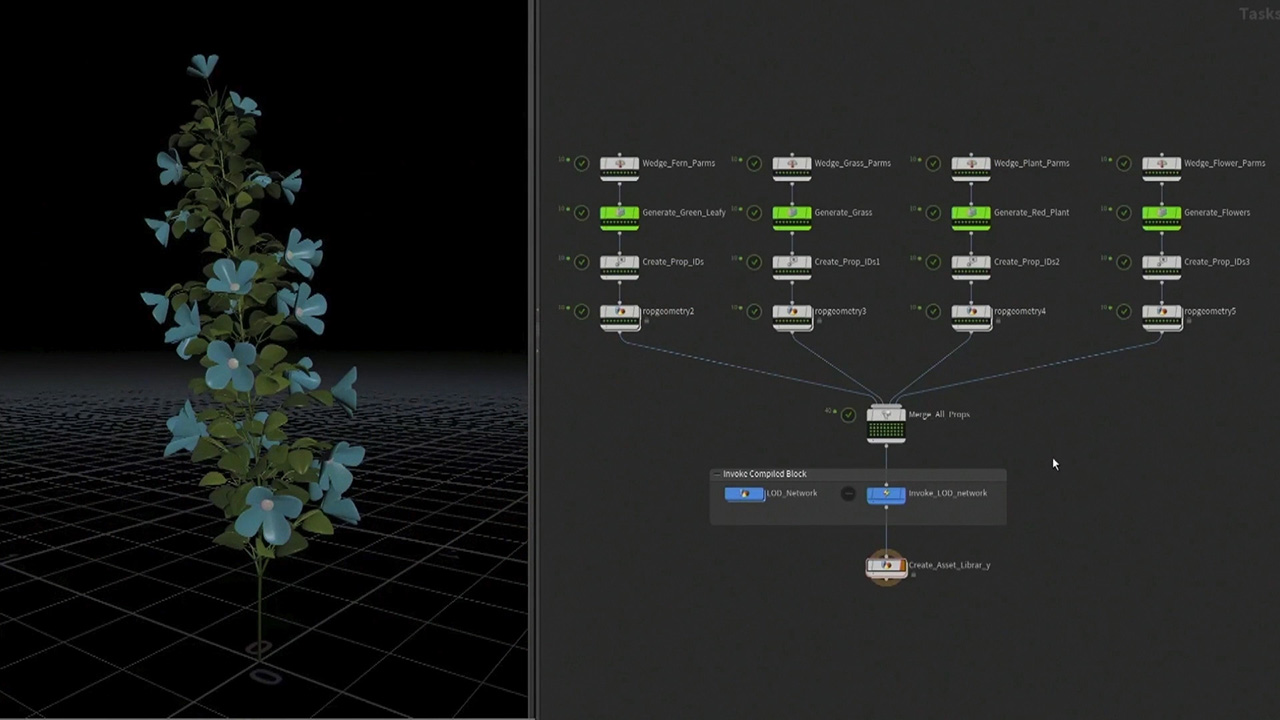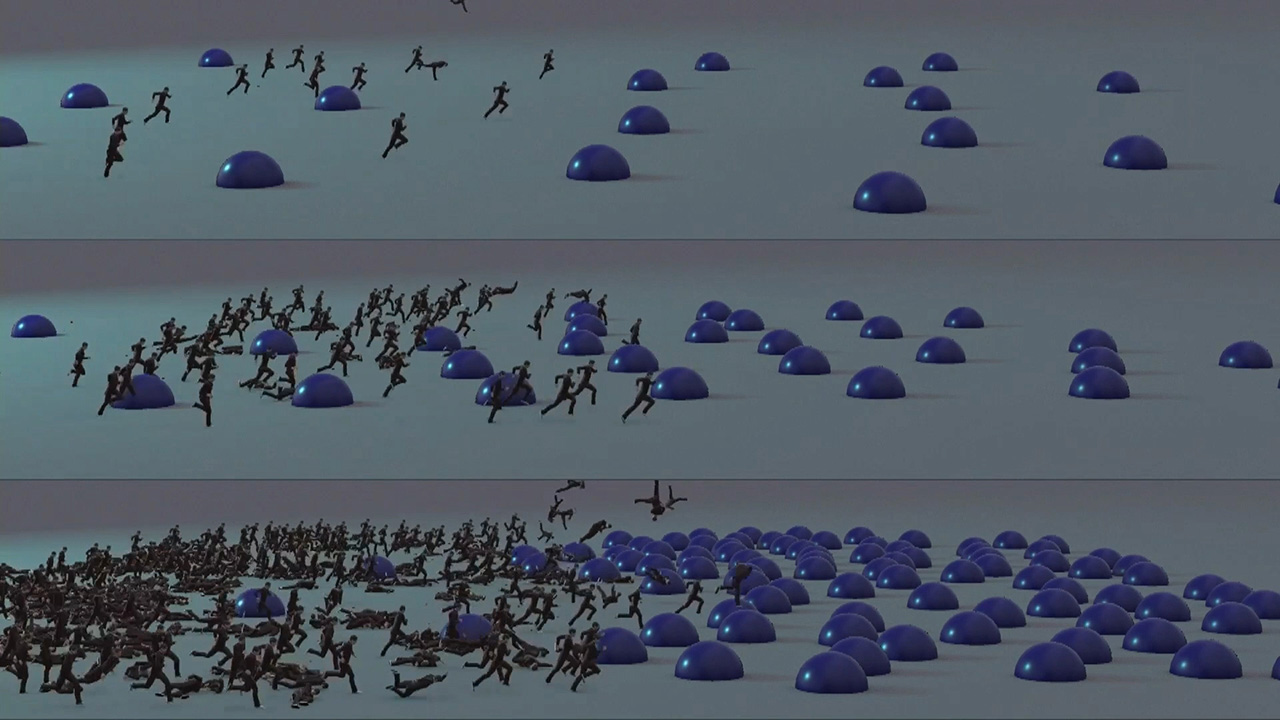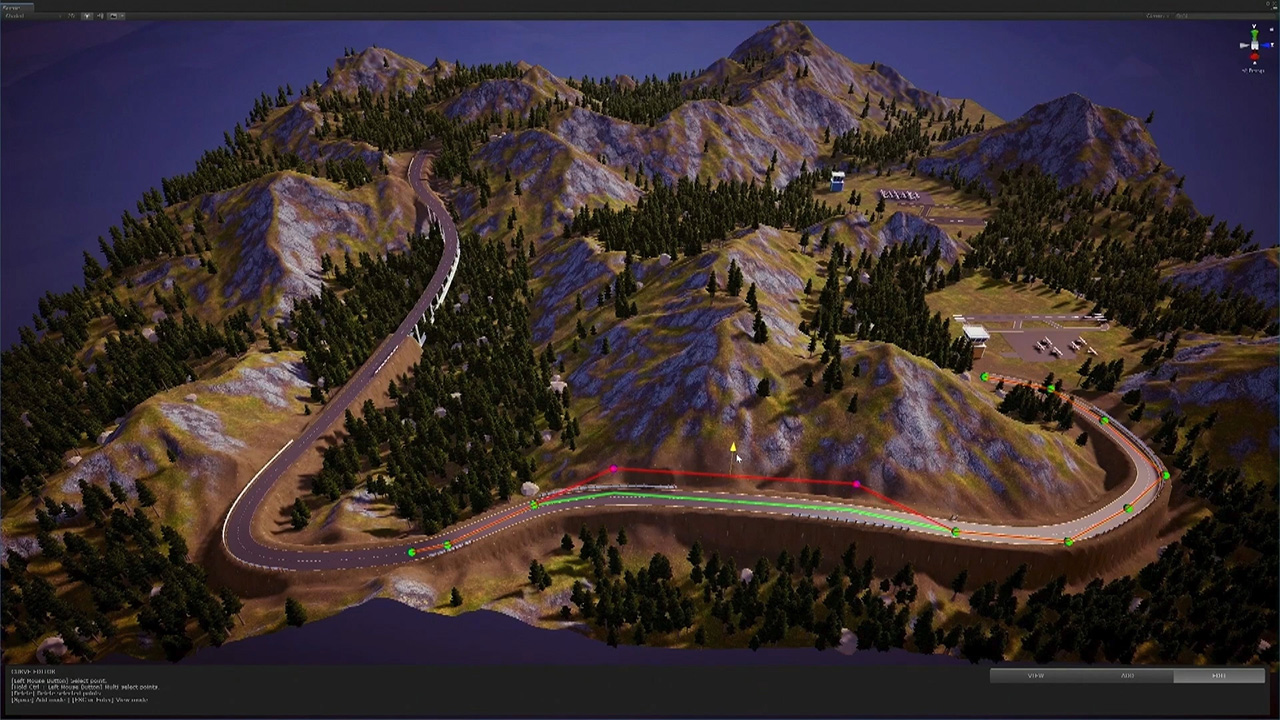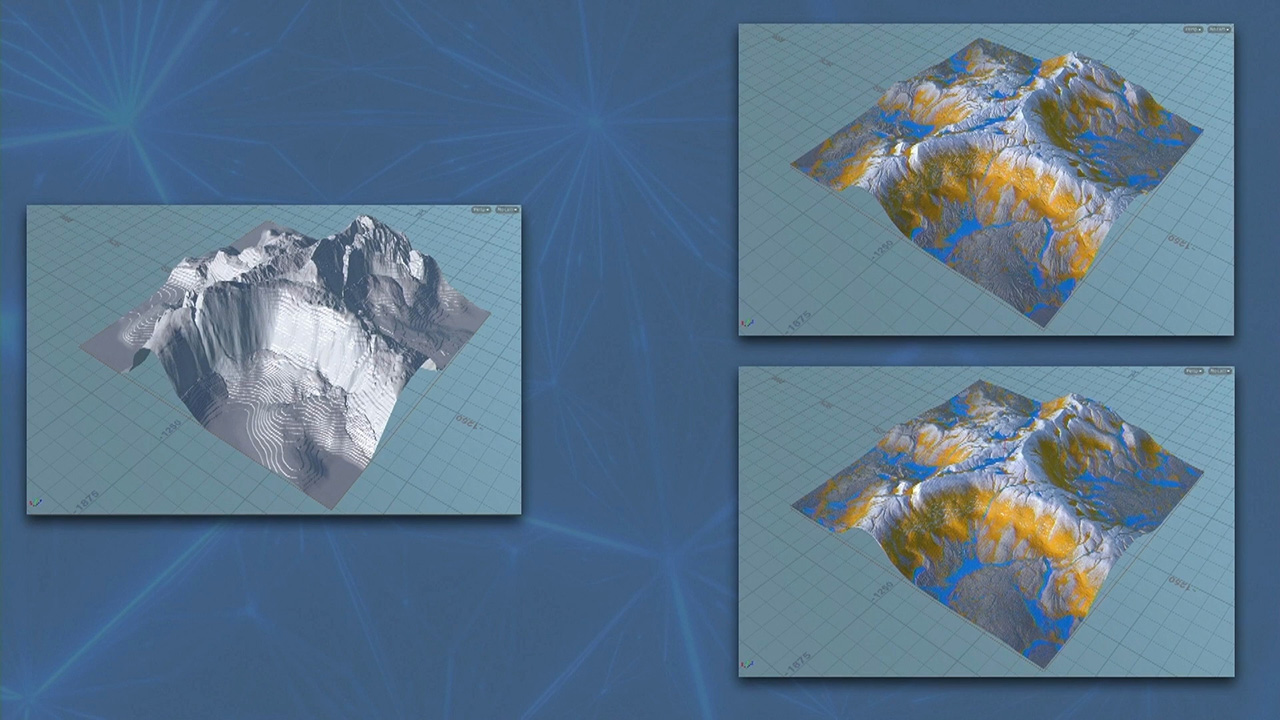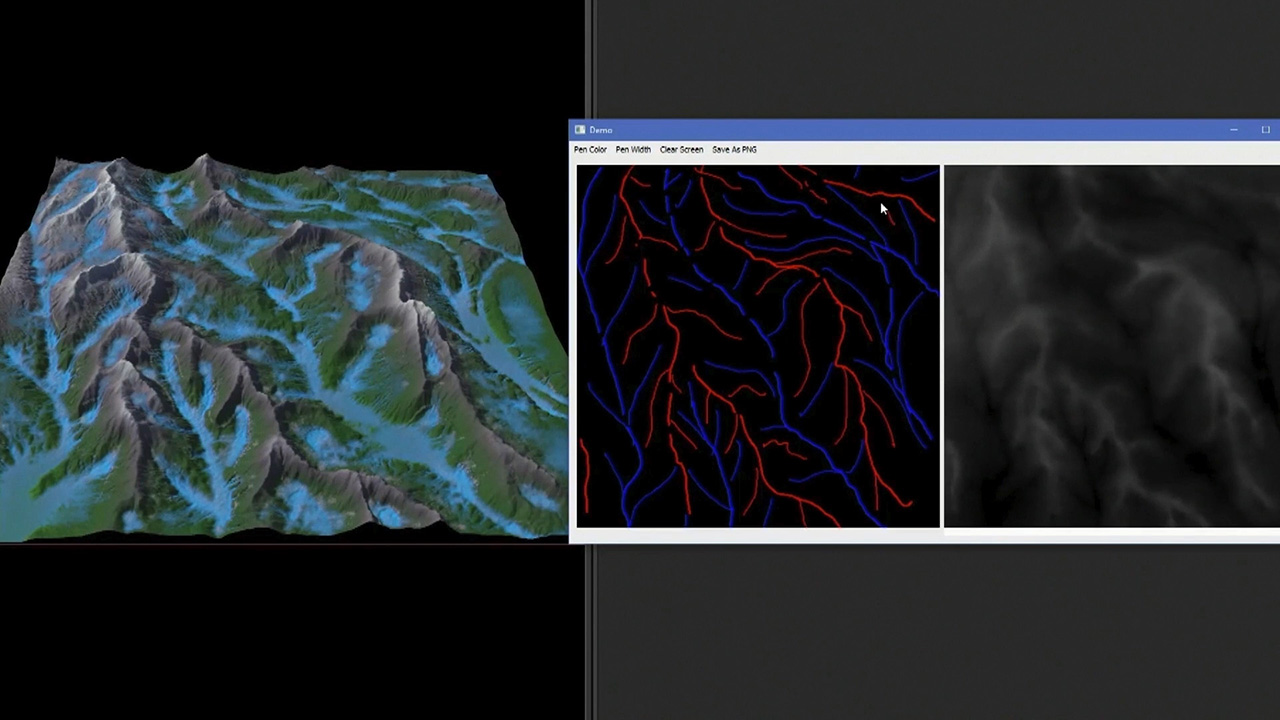PDG | Procedural Dependency Graph
Houdini’s Procedural Dependency Graph workflow transforms how studios manage and scale production. Automate complex tasks, process massive data sets, and build smart, efficient pipelines that keep projects moving smoothly.

PDG is designed to describe these dependencies visually using nodes that generate sets of actionable tasks that are distributed to multiple cores on the same machine, the compute farm, or even the cloud.
PDG provides a rich set of stock nodes to enhance productivity, and manages the dependencies smartly to minimize recompute upon changes.
TOPS | Task Operators
TOPs is PDG technology being applied to Houdini. TOP nodes integrate seamlessly with the rest of Houdini. This brings the power of PDG to FX workflows, but is not limited only to FX. Games, Motion Graphics and other workflows can also benefit, as can technologies such as Houdini Engine.
PDG IN PRODUCTION
Building an Anime-Centric Pipeline Polygon Pictures
PDG was used to automate repetitive simulations, such as cloth & hair, and to manage multi-shot metadata in Polygon Pictures’ pipeline. This streamlined production, reduced manual setup, and allowed artists to focus on creative work instead of technical file management. The studio plans to expand PDG’s role further into other departments as part of a new pipeline.
PIPELINE TOOLS
Accessing PDG Technology
Houdini and its node-based workflow is often referred to as a pipeline-in-a-box. With PDG, you can break this box wide open to scale up to a bigger procedural pipeline. PDG lets you organize and schedule tasks then distribute them intelligently to your compute farm to work in parallel.
MANAGE
Pipeline Dependencies
PDG can describe large parts of your pipeline to ensure that assets are being loaded, processed and saved out efficiently. The fine-grained dependencies can ensure a minimum of compute upon a given change. The TOP nodes can play a number of different roles that will replace manual labour and scripts that can bog down a complex studio pipeline. You can even set up TOP networks that fetch other TOP networks to create multiple levels of abstraction within your pipeline.
AUTOMATE
Iterations & Variations
A key workflow in PDG is the wedging workflow that lets you quickly create multiple iterations of a design. This lets you output a contact sheet that can be used to evaluate the iterations to make the best choice or choose many prop variations to richly populate your scene.
Artwork by Entagma
ENHANCE
Houdini Workflows
Houdini artists can take their work to the next level with TOP networks enhancing existing workflows, to take advantage of the compute farm to parallel-process geometry networks and dynamic simulations.
INTERACT
with Game Engines
For Gamedev, Houdini Digital Assets can already be created to work inside Game Engines such as Unity or Unreal. Now with PDG, you can set up visual procedural systems that capture the relationships between various assets, rather than treating each asset as independent from the others. When a change is made to part of a level, PDG can figure out which terrain tiles, vegetation assets, roads and buildings are affected, and make sure that only those are updated in parallel without re-cooking the whole level.
Artwork by Kenny Lammers | Indie-Pixel
MACHINE LEARNING
Data Synthesis, Augmentation, and Hyper-Parameter Space Search
Machine learning involves lots of trial and error with large datasets and correspondingly large compute to train with those datasets. With PDG, you can synthesize or augment lots of data to help train Deep Learning systems, and try multiple Hyper-parameters on ML models simultaneously.
PDG Nodes
Here some of the nodes to look out for when working with PDG in Houdini. These are in the Task Operator or TOPS node network.
LEARNING RESOURCES
Check out a growing collection of lessons focused on PDG in Houdini.
PDG Learning PathPDG IS AVAILABLE IN:
Houdini CORE | Houdini FX | Houdini Indie | Houdini Education | Houdini Apprentice
